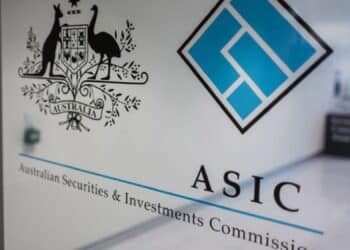ASIC has called on Australian financial services licensees (AFSLs) to assess the accuracy of records about their financial advisers on the Financial Advisers Register.
The warning comes after a spot check identified errors and inconsistencies in some of the information provided”.
According to the regulator, it had identified issues relating to qualifications and training courses being marked as ‘approved’ on the FAR, when in many cases this marking was incorrect
The regulator said common errors include:
- Some of the qualifications marked as ‘approved’ did not accurately match the wording of the course in the Corporations (Relevant Providers Degrees, Qualifications and Courses Standard) Determination 2021 (the Determination);
- Some of the qualifications marked as ‘approved’ were not approved qualifications, they were professional designations (e.g. ‘Certified Financial Planner’);
- Some of the qualifications marked as ‘approved’ were not, in isolation, approved qualifications, they were bridging courses. These may be listed in the Determination but are required to be coupled with another qualification to meet the requirements of the professional standard; and
- Some of the qualifications marked as ‘approved’ were not approved qualifications under the Determination (examples include: the Financial Adviser Exam, Australian Qualifications Framework 1-5 qualifications, and Regulatory Guide 146 training/qualifications).
ASIC added that it is aware of instances where AFSLs have not ensured that the contact details of their financial advisers are up to date.
“AFS licensees are urged to immediately check all the information recorded about their financial advisers on the Financial Advisers Register, with a particular focus on the adviser’s approved qualification(s), ability to provide tax (financial) advice services, business address and telephone number,” the regulator said.
“Guidance is available on the ASIC website on how to check an adviser’s qualifications against the Determination and how to determine if an adviser can provide tax (financial) advice services.”
ASIC said that AFSLs can rectify any incorrect or out-of-date information by lodging a ‘maintain’ transaction via ASIC Connect, adding that a single fee would apply if multiple pieces of information are updated in a single transaction.
“It is a serious offence to knowingly provide false or misleading information to ASIC or to fail to take reasonable steps to ensure that the information provided to ASIC is true and correct,” it said.
“It is also an offence to fail to update the Financial Advisers Register within 30 business days of a financial adviser’s details changing.”
From 1 August 2024, ASIC said it would commence a compliance program to ensure that the information recorded on the FAR about approved qualifications is correct and “will consider enforcement action where necessary”.
“This will remain a key focus for ASIC in the lead up to 1 January 2026, when all financial advisers must comply with the qualification standard, either by completing an approved qualification, by completing qualifications the Minister has determined to be equivalent to an approved qualification for existing advisers, or by accessing the experienced provider pathway,” ASIC added.
Last week, the regulator reminded AFSLs that from 1 July 2024, they are required to notify ASIC by lodging a notice where they have received a written declaration from a financial adviser who is eligible to access the experienced provider pathway.
Written declarations should be provided by the adviser to the AFS licensees “as soon as practicable” if they wish to access the pathway.
The corporate regulator also flagged that the FAR will not display whether an adviser is relying on the pathway.
“Removing this information from the public-facing register aims to reduce confusion and minimise risks to consumers. The update also recognises the introduction of the experienced provider pathway, which provides an alternative to the completion of an approved qualification,” it said.





